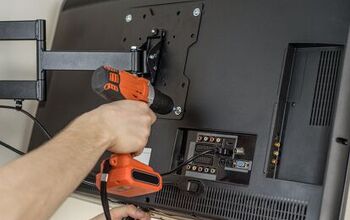How Much Does It Cost To Dig A Basement Deeper?

Digging a basement deeper can be a perfect solution for some. The popular renovation project can be costly, but it can also raise property value considerably when done correctly.
If you are considering opting for a deeper basement, there are some things that you should consider before calling your contractor.
The cost to dig a basement deeper can range from $10,000 to $100,000. Prices are dependent on a wide number of factors and each project is priced somewhat differently as a result. In a normal setting, a range of $30-$75 per square foot can be expected.
Do You Need Basement Remodeling Services?
Get free, zero-commitment quotes from pro contractors near you.

Investment vs. Valuation
One of the first considerations people often have is how much their investment will pay off in the end. Digging a basement deeper will almost always add value to a home. However, the big question is how much value is added and whether the future home value will offset the cost of the project.
Cost of Digging a Basement Deeper
There are many things that go into pricing a basement deepening project. A homeowner could get away with a project cost of $10-30K while another could pay upwards of 6 digits.
The two primary factors that decide the price are the methods used for digging deeper. Underpinning (more expensive but nicer) and benching (less expensive) are two of the most common methods used.
Other factors include the size of the basement, how deep the new floor should be, and how long the job will take.
Square Footage
If the basement in question is new – as is there was no livable space available before the project – then the new basement will likely add a lot of usable square footage to your home. In this case, the property value is almost certain to go up considerably.
If the project aims to ‘raise the ceilings’ of an existing basement by digging further down into the earth, there is no added floor space. That means that the project will not have any effect on the square footage of the property.
Luckily, there is much more involved with raising the value of a property than simply expanding floor space. Before you take on a project like digging a basement deeper, however, there are some important considerations that need to be taken into account.
Permits for Digging Deeper
One aspect of digging a basement deeper is the possibility that you will need a permit. This is something that should never be overlooked. Many types of basement conversions do not require building permits. Excavating the floor of your basement, however, is usually a job that will require one.
The types of permits that you will need to obtain will depend on the location of the property, the type of property that you have, and the complexity of the job at hand. Examples include basement walls that are shared with neighbors and regulations in place regarding maximum depth for building projects.
It is always best to be on the safe side and check with your local municipality before starting a major project like digging a basement deeper.
As long as your basement project is in line with local regulations, obtaining a permit should be an easy process. Getting a permit to dig your basement deeper usually just entails having your plans for construction approved by a government office, then allowing your work to be inspected at regular intervals.
Getting the permit helps make sure that the work that you do is safe. It is also a great way to provide peace of mind to any future homeowner interested in taking your property off your hands.
Basement Waterproofing
As part of your overall project, you will want to make sure that you properly seal off your basement from vapor and other forms of moisture. There are a few different approaches to keeping a basement dry and the one that you should select depends on your particular home and surrounding area.
Installing a moisture barrier is a very popular solution. The most common types of moisture barriers are rigid foam, poly sheeting, and exterior house wrap – also known as Tyvek. Although there are a few other styles and methods available for keeping your basement dry, these are the most widely used in many parts of the country.
It is always a good idea to check with your local home improvement store, as well as with a few different contractors to find out what types are best suited to your homes style and climate.
Plumbing and Drainage
Another thing to keep in mind when digging a basement deeper is how the structure handles drainage. Before doing any digging, you will have to find out where the drains of your house go. If there is a sump or a septic tank, the drainage system will be a bit different than if the structure drains out to the main sewer line.
When digging deeper, the drainage and plumbing will also need to be redone (if there is any existing plumbing under the floor). Depending on the size and complexity of rebuilding the plumbing system, the overall cost of digging a basement deeper can vary quite a lot.
Benefits to Digging a Basement Deeper
Although digging your basement deeper can run anywhere from a few thousand dollars to tens of thousands, the payoffs are usually worth it when done correctly. Basement conversions come in many different forms and each has its own set of pros and cons.
There are a few common reasons and methods used for digging a basement deeper. Some people wish to create an entirely new basement from an existing crawl space. Some would like their basement to add another level of living space to their home. Still others are simply looking to ‘raise’ the ceilings in their basement to make the space more enjoyable.
Walkout Basements
Walkout basements are a good example of how digging your basement deeper can significantly alter the way you live in your home.
Digging deeper to build a walkout basement can significantly raise your property value by adding more light, providing more living space and easier accessibility, and much more. Adding a walkout basement also creates more entry and exit points for the home making it safer and more valuable.
If you are considering digging your basement deeper to create a walkout basement, there are certainly many great reasons to go ahead with the plan in most cases.
That said, there are some aspects to building a walkout basement that some may not be ready for. Cost, scope, and time are all greater when compared to a standard basement dig.
Crawl Space to Basement Conversion
Another possibility that many homeowners have when it comes to excavating under a preexisting structure is to turn a crawl space into a full-sized, finished basement. Turning a crawl space into a basement is a very popular project, in fact, but there are some things to know before starting your journey.
Foundation and Stability Issues
One thing that should always be taken into consideration before doing any digging is how the structure is supported. It is often the case that homes built without basements are not supported in ways that basements require.
Creating a large, hollow cavity beneath a house that was not designed for it can cause some serious issues. That said, with the right information, expertise, materials, and equipment, the project can be completed.
Dealing with the Unknown
There are some potential difficulties that come from excavating beneath a pre-existing structure (think dirt removal, large digging equipment, etc.). Apart from that, however, there is also a bit of mystery about what lies under the earth.
During the digging process, it is also possible to discover water, pests, large boulders, and much more. Any of these surprises can potentially make the digging process much more complex.
Alternatives
Digging a basement deeper can certainly come with a lot of benefits but there are times when digging isn’t a viable solution for many people. Fortunately, there are few methods that homeowners can employ to get the most from their basements.
Raise the Ceiling
One alternative to digging a basement deeper is to raise the level of the house. While this method also requires permits and a fairly involved process, it is sometimes easier to lift the house than it is to go deeper.
The process of lifting a house is straightforward and can usually be finished much faster than digging a basement deeper. However, this is generally seen as the best option for those simply looking for more ‘headroom’ in their basement.
It is also helpful to remember that only certain basement conversion projects will have a significant impact on the overall property value of a home.
Design Choices
Interestingly, many can find the solutions that are looking for without actually deepening their basement.
Choosing light colors for the finished ceiling and walls will give the basement a lighter feel that seems larger than it is. Lights are important as well. Keep lights and fixtures either embedded into the ceiling or opt for floor lamps or something similar. Anything hanging down from a low ceiling will only make that low ceiling seem more imposing.
Furniture selection and placement can also help make a small space look larger than it is. Using simple furniture that does not overly clutter the space will go a long way in keeping things looking and feeling light.
Do You Need Basement Remodeling Services?
Get free, zero-commitment quotes from pro contractors near you.

Related Questions
Is it worth it to dig a basement deeper?
For many, deepening a basement is worth it. Digging a basement deeper can have a long-lasting effect on both the value of a property and the livability of the space.Not only does raising the ceiling make the basement feel more like the other floors of the house, but it can also create opportunities that did not exist before deepening the basement.
Is it expensive to deepen a basement?
The price to deepen a basement can vary quite a lot. There are numerous factors that impact the overall price, including state and city, site conditions, scope and size of the project, desired depth, and much more. Many contractors will charge somewhere between $40 to $75 per square foot.

Benjamin is a proud homeowner who loves to write about DIY projects and home improvement projects. Traveling, perfecting his home, and spending time with his family are just a few of the many things that keep him inspired.
More by Benjamin Wright



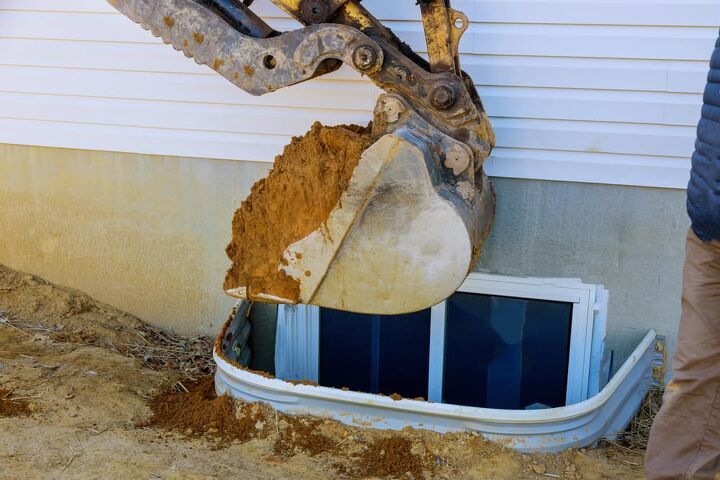
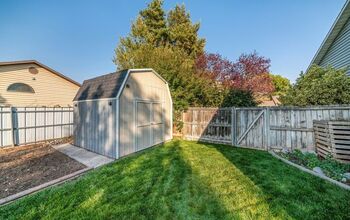





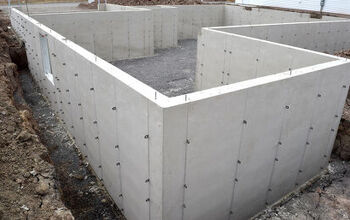
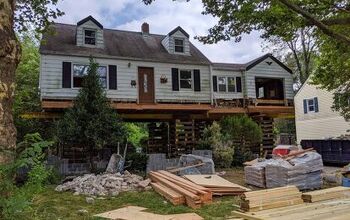
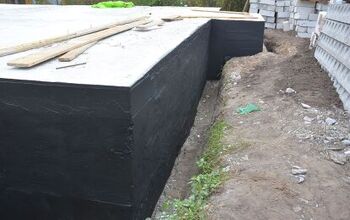
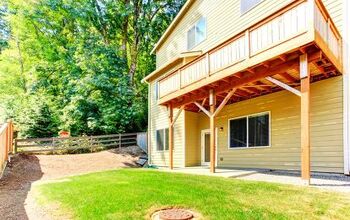
![10 Best Scroll Saws for 2022 [Ultimate Reviews & Buyer's Guide]](https://cdn-fastly.upgradedhome.com/media/2023/07/31/9070684/10-best-scroll-saws-for-2022-ultimate-reviews-buyer-s-guide.jpg?size=350x220)


